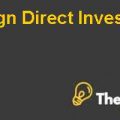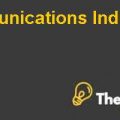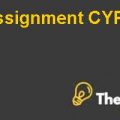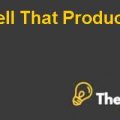Sanofi-Aventis’ Tender Offer for Genzyme Case Solution
Introduction
The CEO of the Genzyme, Termeer has been managing Genzyme for more than 25 years. The skills and leadership of Termeer have transformed an entrepreneurial company into a well-known prestigious biotechnology firm. Genzyme is considered as one of the top five biotechnology firms of the United States. The company started its operations in the year 1981 and the goal of the company was to develop drugs for the enzyme deficiency.
The Enzyme deficiency disease has affected only few people in the world. The drugs used for the cure of this disease are known as the orphan drugs. In order to encourage the companies to develop the drugs for these type of diseases, an incentive plan in the form of the Orphan Drug Act (1983) was formed, which provided economic and legal advantage to the orphan drug making companies.
Genzyme is considered as one of the pioneer companies, which brought the benefit of Orphan Drug Act. Since its inception, the company was more on developing the drugs for rare diseases which would be found in only few people. The rare target market has led the company to have high investment in Research and Development and it has multifaceted manufacturing practice, which would increase the cost of the drugs and it might increase to more than $200,000 US per patient annually.
The company has ranked third for the World’s largest Biotechnology companies in 2009. The year 2009 recorded revenue of around $4 billion with a market capitalization of $13 billion and a number of employees reached to more than 11,000 selling and marketing for Genzyme in more than 90 countries.Moreover, Genzyme has diversified its business since its origin by acquisitions of number of companies.
Sanofi-Aventis has a history of approximately 300 years as its roots have been present since the year 1718. The company ranks fourth on the World’s largest pharmaceutical companies and ranks second on the Europe’s largest pharmaceutical companies. The company generated a total revenue of more than 29 billion Euros in 2009. In addition to this, Sanofi-Aventis has divided its operations into two major sectors of pharmaceutical and vaccines.
Problem Statement
Sanofi-Aventis has offered a bid of $69 per share in cash for the acquisition of Genzyme, which was rejected by the CEO of the Genzyme, Termeer. Termeer has a vast experience regarding pharmaceutical as well as he has the knowledge regarding the Merger and Acquisition terms in the Pharmaceutical Industry as Genzyme has acquired a number of companies during his tenure.
Termeer considered the Sanofi-Aventis’ bid for Genzyme as undervaluing the real worth of the company and as a result, rejected the offer. The CEO of Sanofi-Aventis, in return, would bypass the deal to the shareholders of Genzyme of $69 in cash per share of Genzyme.
Analysis
Several analysis have been performed in order to conclude the real worth of Genzyme in comparison to the bid offered by Sanofi-Aventis. The Discounted Cash Flows have been again conducted with variations according to the management’s case in order to identify the real value of the company and per share price.
The value of the discount factor is also considered as 7% as a large pharmaceutical company. Lastly, the sensitivity analysis has been performed for the valuation of the company at different discount factors and growth rates.
Discounted Cash Flows at a discount factor of 7%
The discounted cash flow is the most common technique used for the future valuation of a company. The discounted cash flow is conducted as per instructed in the case to have a discount factor of 7% with an observed growth rate of 5%. The NOPAT from the Exhibit 1 has been taken, which is shown in the appendix at the end of the report.......................
This is just a sample partial case solution. Please place the order on the website to order your own originally done case solution.












